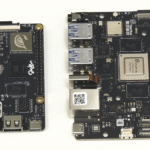A new survey finds Texas voters increasingly alarmed by the nation’s dependence on Chinese-made medical devices and technology, and ready to back candidates who will address the issue.
With the CCP’s threat to American security front and center, the polling from the Protecting America Initiative says Texans back tougher steps to limit exposure to adversary‑linked vendors while accelerating U.S. manufacturing of critical health technologies.
This follows recent reports about the CCP’s threat to American security, including a lawsuit against Lorex, a home security camera brand sold at retailers such as Costco and Best Buy. The Nebraska complaint claims Lorex misled consumers by not disclosing that its baby monitors depend on a Chinese company sanctioned by the U.S. for national security and human rights violations, potentially exposing American’s private data to Beijing.
According to the Protecting America Initiative poll, 66 percent of likely Texas voters believe the United States is overly dependent on Chinese-produced medical technologies. Much of this concern appears to stem from questions surrounding data protection and the increasing connectivity of modern medical devices.
When asked about the volume of MedTech devices imported from China, such as imaging systems and surgical tools, 75 percent of respondents say the level of imports is concerning. The survey also finds broad concern over data exposure. 82 percent of voters worry that Chinese medical companies operating in the United States could be required by the Chinese government to share sensitive information, and 83 percent believe that advanced devices manufactured by Chinese companies pose risks to patient data privacy within U.S. healthcare facilities.
The survey results show strong support for federal steps intended to reduce exposure to potential data security risks. Texans favor conditioning public dollars on reasonable security and provenance standards, with 57 percent supporting restrictions on federal funding for hospitals that rely heavily on Chinese medical technology. Support is even broader, 79 percent, for limiting partnerships with companies tied to foreign governments.
These issues may also influence the 2026 elections. The survey finds that 64 percent of respondents would be more likely to support candidates who favor restricting federal funding for hospitals using Chinese-made devices. Similarly, 79 percent say they would be more likely to back candidates who support increased oversight of Chinese medical companies operating within the United States. The consistency of these responses across party lines suggests the potential for a broad coalition in favor of enhanced data-security measures and domestic manufacturing efforts.
Texans expect policymakers to ensure that hospital technology comes from trusted vendors with transparent ownership, auditable code, and U.S. jurisdiction over data storage and transmission.
Overall, the survey suggests that many Texas voters view China’s influence as a risk for both patient privacy and national security. After Gov. Greg Abbott’s actions this summer to protect Texans from the threat of the CCP, this polling suggests Texas leaders who pursue such measures are likely to find substantial public support in the state.











